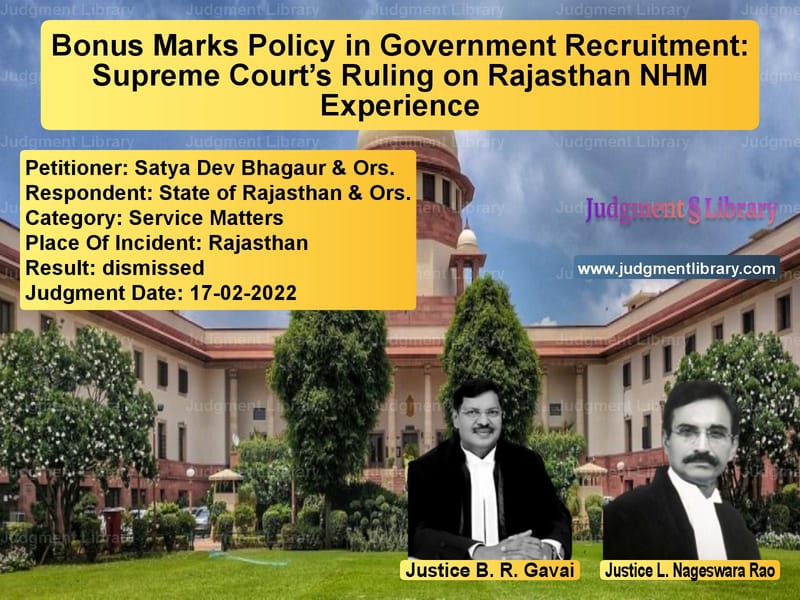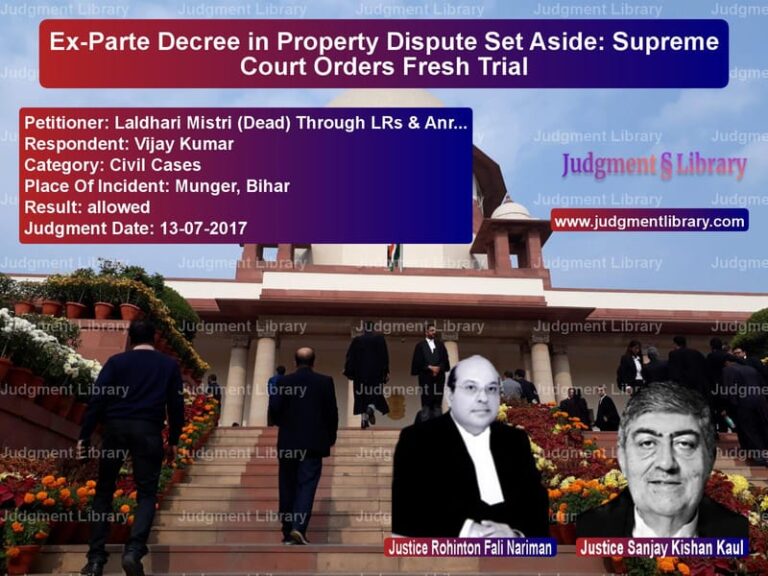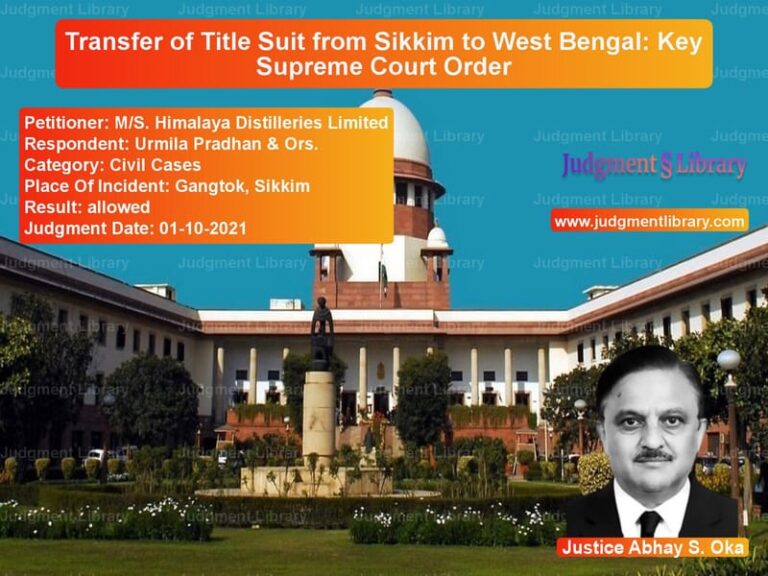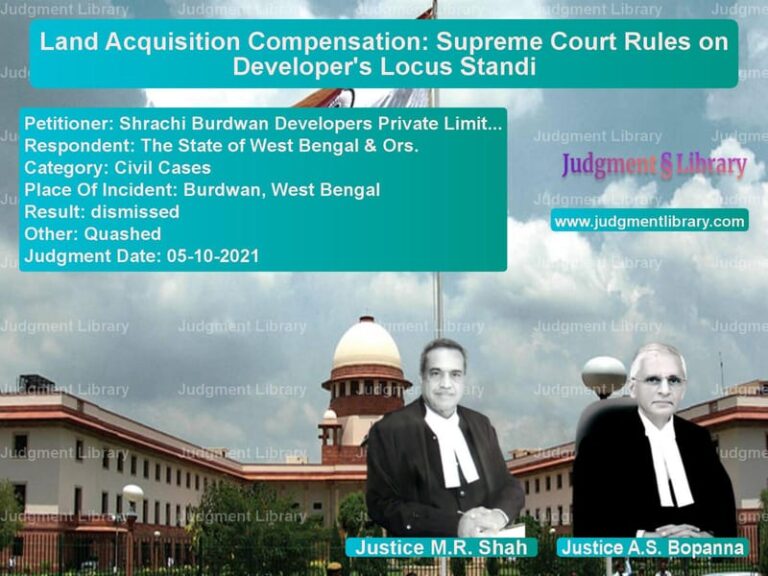Bonus Marks Policy in Government Recruitment: Supreme Court’s Ruling on Rajasthan NHM Experience
The case of Satya Dev Bhagaur & Ors. vs. State of Rajasthan & Ors. is a significant ruling concerning the awarding of bonus marks in government recruitment for healthcare workers under the National Health Mission (NHM) and National Rural Health Mission (NRHM). The Supreme Court examined whether candidates who worked in NHM/NRHM schemes outside Rajasthan were entitled to the same bonus marks as those who worked within the state.
The case arose when Rajasthan introduced a policy granting bonus marks to candidates who had experience working under NHM/NRHM schemes within the state. Several candidates who had worked under similar schemes in other states challenged the policy, arguing that it was discriminatory and violated their right to equal opportunity. The Rajasthan High Court ruled against them, and the matter was brought before the Supreme Court, which upheld the High Court’s decision.
Background of the Case
The key events leading to the Supreme Court judgment are:
- The Rajasthan government framed the Rajasthan Ayurvedic, Unani, Homeopathy, and Naturopathy Services (Amendment) Rules, 2013, which included provisions for awarding bonus marks to candidates with prior experience.
- Under Rule 19, candidates applying for the post of Nurse Compounder Junior Grade were entitled to bonus marks for experience gained under specific government health schemes.
- The state issued a notification on 30th May 2018 specifying that only candidates who worked under NHM/NRHM within Rajasthan would be eligible for these bonus marks.
- Candidates who had worked in NHM/NRHM schemes in other states filed writ petitions in the Rajasthan High Court, seeking to be included in the bonus marks policy.
- A Single Judge of the High Court ruled in their favor, directing the state to grant them bonus marks.
- The Rajasthan government appealed, and the Division Bench of the High Court reversed the Single Judge’s decision, ruling that the policy was valid.
- The affected candidates then approached the Supreme Court.
Legal Dispute Over Bonus Marks
The primary issue before the Supreme Court was whether restricting bonus marks only to candidates who worked under NHM/NRHM in Rajasthan violated the principle of equality under Article 14 of the Constitution.
Relevant Legal Provisions
- Article 14 of the Constitution: Guarantees equality before the law and prohibits arbitrary discrimination.
- Rule 19 of the Rajasthan Recruitment Rules: Provides for awarding bonus marks based on experience in specific government health schemes.
The appellants argued that the policy was discriminatory, as it treated candidates with identical experience differently based on the state where they had worked. The Rajasthan government defended the policy, stating that working conditions and training under NHM/NRHM varied across states, and priority should be given to those familiar with Rajasthan’s specific healthcare challenges.
Arguments Before the Supreme Court
Appellants’ Arguments
The appellants, represented by their counsel, contended that:
- The policy unfairly discriminated against candidates based on their place of work, violating Article 14.
- NHM/NRHM schemes operated under the same national framework, meaning experience gained in any state was equally valuable.
- The work performed under NHM/NRHM in different states was identical, and denying bonus marks to out-of-state candidates was arbitrary.
- The Single Judge of the High Court had correctly ruled that all candidates with NHM/NRHM experience should be treated equally.
Rajasthan Government’s Arguments
The Rajasthan government, represented by senior counsel, countered that:
- The bonus marks policy was designed to prioritize candidates familiar with Rajasthan’s specific healthcare challenges.
- The NHM/NRHM programs varied in implementation across states, and experience gained elsewhere did not necessarily prepare candidates for Rajasthan’s conditions.
- The policy aimed to reward candidates who had served in Rajasthan’s difficult healthcare environments, particularly in rural and tribal areas.
- The Division Bench had correctly interpreted Rule 19, which explicitly limited bonus marks to those who worked within the state.
Supreme Court’s Judgment
The Supreme Court upheld the Rajasthan High Court’s Division Bench ruling, dismissing the appeals of the out-of-state candidates. The key findings were:
- Rule 19 was designed to benefit candidates who had specific experience in Rajasthan’s healthcare sector.
- The state had a legitimate interest in prioritizing candidates familiar with its healthcare system and conditions.
- The policy was not arbitrary or discriminatory, as it applied uniformly to all candidates seeking employment in Rajasthan.
- The Court reaffirmed the principle that states have the right to frame policies tailored to their administrative and service needs.
The Supreme Court observed:
“The policy of the State of Rajasthan to restrict the benefit of bonus marks only to such employees who have worked under different organizations in the State of Rajasthan and to employees working under the NHM/NRHM schemes in the State of Rajasthan, cannot be said to be arbitrary.”
Key Observations from the Judgment
- The Court emphasized that judicial interference in policy matters should be minimal unless a policy is patently discriminatory.
- The bonus marks policy was designed to incentivize and reward candidates who had served in Rajasthan’s healthcare system.
- NHM/NRHM programs were implemented differently across states, justifying Rajasthan’s preference for candidates with in-state experience.
- The ruling reinforces the principle that state governments have the discretion to set recruitment policies that align with local needs.
Conclusion
This ruling sets an important precedent on the extent of state governments’ discretion in framing recruitment policies. The Supreme Court reaffirmed that policies prioritizing local experience in public health services are valid and do not violate constitutional equality provisions.
The decision ensures that states can implement policies that cater to their unique administrative and healthcare challenges. While candidates from other states may find this ruling restrictive, it highlights the judiciary’s approach to balancing state autonomy with constitutional guarantees of equality.
Petitioner Name: Satya Dev Bhagaur & Ors..Respondent Name: State of Rajasthan & Ors..Judgment By: Justice B. R. Gavai, Justice L. Nageswara Rao.Place Of Incident: Rajasthan.Judgment Date: 17-02-2022.
Don’t miss out on the full details! Download the complete judgment in PDF format below and gain valuable insights instantly!
Download Judgment: satya-dev-bhagaur-&-vs-state-of-rajasthan-&-supreme-court-of-india-judgment-dated-17-02-2022.pdf
Directly Download Judgment: Directly download this Judgment
See all petitions in Recruitment Policies
See all petitions in Judgment by B R Gavai
See all petitions in Judgment by L. Nageswara Rao
See all petitions in dismissed
See all petitions in supreme court of India judgments February 2022
See all petitions in 2022 judgments
See all posts in Service Matters Category
See all allowed petitions in Service Matters Category
See all Dismissed petitions in Service Matters Category
See all partially allowed petitions in Service Matters Category







